|
I couldn’t go to sleep. Spending time in a crowded hospital with a dear friend who was dying left me restless and lying awake looking for God in the dark and finding nothing. It was the proverbial last straw. Too much. “What the hell?!...Does God even exist?!” I bitterly thought in the emptiness. The absurdity of being a spiritual director seemed to mock me in that moment. Every image of God I ever held did nothing to comfort me and the absence of images and comfort left me in a place of nihilistic rage and deep sadness. Even though I had read John of the Cross and Julian of Norwich by her hospital bed, recalling conversations we had enjoyed over the years about their (and our) experiences of love in the darkness, here I was struggling in my own dark night. “What a waste of my life! What a charade!” I thought as I recalled my life of being devoted to God and tending to the spiritual life, both mine and others, only to stare into the void of meaninglessness (and not for the first time). Furrowed brow, eyes squeezed shut, the rest of my body now as tense as my face, silently shouting—"Where is God in this chaos?” “Why even ask? Life is showing me there really is no God at all.” After a while, somehow, something small slipped in through the tightness and whispered, “God IS Chaos.” Before I could think, my brow and eyes started softening. My body noticed the truth before my brain could think about refuting what had just been spoken to me in the dark. Then an image appeared in my mind’s eye—Kali. I couldn't remember much about her, only that she's the Hindu goddess of chaos and destruction leading to life. Images of her can be quite disturbing (especially for those of us Westerners who don't know the symbolism) and here she was showing up in the stillness of night! Later I would read that in Hinduism, she is the ultimate manifestation of Shakti, the primordial energy, the mother of all (watch this video for more). Kali’s dark skin stands for this chaotic, life-birthing energy.  "Hearing ‘God IS Chaos’ and remembering the Hindu goddess, Kali…there was something strangely settling in that, and I was able to fall asleep,” I later texted a friend, a nurse experiencing burnout in a crowded hospital (she went on to write a piece of prose for her doctoral class assignment based on our text thread). __________ The next morning, I walked outside in my pajamas. The stifling heat, sticky humidity, and earsplitting cicadas continued the conversation— I was surrounded by the sound and sensations of chaos. I forced myself to sit in the discomfort. From that place I wondered if I had written anything down from the Icon-Writing Retreat my dear friend and I had attended together a couple of months earlier. I went inside, grabbed my journal, then returned to the front porch to find the dates of that weekend retreat. __________ In the first place, I had no time to go on that retreat. Life had been exhausting and the thought of painting anything in that state added to my overwhelm. In the second place, I wanted to spend time with my dear friend, knowing that stage 4 cancer was eventually going to rob us of time (by the way, Kali's name means both "darkness" and " force or fullness of time"). So I picked her up on a Friday morning in May and went. _________ There it was, May 13th-15th, along with a short entry for each day (the last one being, "I am so glad I went."). I was grateful that I had written down a few things, even though they had been forgotten in the rush of life’s challenges. I recalled how my friend and I sat side-by-side looking at the blank wood that our icons would be painted on and while she felt excitement, I felt dread. How was I going to do this?! The instructor told us to fill our brushes with paint and then said, “Relax, because the first stroke when it comes to painting an icon is called The Chaos Stroke!” Immediately I softened and a hint of excitement even found its way inside my weary head. The Chaos Stroke is named so because it represents the primordial energy at the beginning of Creation found in the first chapter of Genesis in the Hebrew Bible. Our spontaneous swirls and waves echoed the Spirit (or Wind or Breath) of God, moving over the surface of the deep, dark waters. And like the Genesis account, step by step, day by day, things started appearing where before there was nothing but potential in the eye of the Beholder. From the chaos within me, from the chaotic swirls on my wooden panel, emerged a rendering of Rublev’s Trinity from the 15th century! 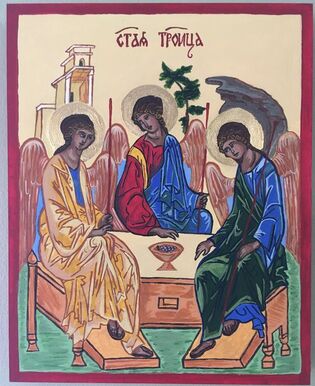 My finished icon of Rublev's Trinity My finished icon of Rublev's Trinity I smiled sitting on the porch, in awe of the synchronicities…chaos, Kali, cicadas, a journal entry about the Chaos Stroke from an icon retreat attended with this friend whose impending death had ushered in another layer of chaos... Nothing had changed. It still felt awful to know my friend was going to die (and she did, less than 24 hours later). And the things that were a mess in my life, were still a mess. Nothing had changed this, and yet… Being open to “God Is Chaos” had strangely allowed comfort and brought the awareness that God was also “With Me in Chaos.” The latter recalls the message gifted us through the person of Jesus the Christ, who was called Emmanuel, God-with-us. Light began shining in my darkness once more. Holding the paradox of "God Is Chaos" and "God With Us in Chaos," I remembered the expression that emerged on the face of the center figure, the Christ, in my friend’s painting of the Holy Trinity—we laughed and called him the “Mischievous Jesus.” He knew something we did not...yet. Even now, words fail to describe how, in darkness and in light, I keep being beckoned into the at-times-difficult, divine dance that Rublev painted years ago, his brush beginning with Chaos. During these turbulent times we must remind ourselves repeatedly that life goes on.
This we are apt to forget. The wisdom of life transcends our wisdoms; the purpose of life outlasts our purposes; the process of life cushions our processes. The mass attack of disillusion and despair, distilled out of the collapse of hope, has so invaded our thoughts that what we know to be true and valid seems unreal and ephemeral. There seems to be little energy left for aught but futility. This is the great deception. By it whole peoples have gone down to oblivion without the will to affirm the great and permanent strength of the clean and the commonplace. Let us not be deceived. It is just as important as ever to attend to the little graces by which the dignity of our lives is maintained and sustained. Birds still sing; the stars continue to cast their gentle gleam over the desolation of the battlefields, and the heart is still inspired by the kind word and the gracious deed. There is no need to fear evil. There is every need to understand what it does, how it operates in the world, what it draws upon to sustain itself. We must not shrink from the knowledge of the evilness of evil. Over and over we must know that the real target of evil is not destruction of the body, the reduction to rubble of cities; the real target of evil is to corrupt the spirit of man and to give his soul the contagion of inner disintegration. When this happens, there is nothing left, the very citadel of man is captured and laid waste. Therefore the evil in the world around us must not be allowed to move from without to within. This would be to be overcome by evil. To drink in the beauty that is within reach, to clothe one’s life with simple deeds of kindness, to keep alive a sensitiveness to the movement of the spirit of God in the quietness of the human heart and in the workings of the human mind-- this is as always the ultimate answer to the great deception. Excerpted from Meditations of the Heart by Howard Thurman, published by Beacon Press, 1953. _____________________________________________ The words of this spiritual mentor of Martin Luther King, Jr., can still offer us wisdom during times of rising anger and increasing hopelessness. We often reflect on the writing of Howard Thurman in Wisdom Tree Collective’s School of Spiritual Direction. He was a civil rights leader, a theologian, author, academic, and pastor who was a mystic at heart, finding solace in nature—a favorite oak tree was a spiritual friend, a nonhuman elder & mentor. Thurman also co-founded the Church for the Fellowship of All Peoples in San Francisco, the first racially integrated, intercultural church in the United States, which also valued the creative arts as a way of sharing the Good News. He was familiar with suffering. Let his words speak to your soul today. Read more of his wisdom in his book Meditations of the Heart. By the end of December, I was exhausted. The joy of journeying with the first cohort in Wisdom Tree Collective's School of Spiritual Direction (more about that next month!), was overshadowed by a deep weariness. And I was dragging..
My repeated tries to get away for a few days of rest and relaxation?--thwarted! So, I took a vacation from social media and spent a little time listening to my life (and body). What I discovered was over-commitment and way too high of self-imposed expectations for any mere mortal. You may know this feeling well. I did not simply need a week away from my everyday life, I needed to change the rhythm of my life every day! That became (and is) my prayer this month: to return to the "unforced rhythms of grace" that Jesus speaks of in Matthew 11. With that prayer has come the awareness of how I'm out-of-rhythm:
Such self-awareness can leave me feeling overwhelmed. Creating space or learning anew seems like another responsibility. A spiritual practice that helps soften the hardness and let go of the heaviness in the moment is writing haiku, a 17 syllable, separated into 5/7/5, poem. Here are two of the six I wrote last week: When too many words Are swirling within your brain Pour them out in ink Come, laugh a little Release the seriousness Everyone needs play These simple poems helped me focus my overwhelming feelings into three simple lines revealing my soul's wisdom for the present: Pause, write and play. Others revealed practical ways of shifting energy and attention, letting go and opening up. Space was being created in me! This allowed me to see the gifts being offered, like a friend suggesting a children's book on breathing (scroll down to learn more). Maybe haiku is something for you, too. It reminds me of Jesus' invitation to become like a child (especially when struggling under the weight of being an adult)! With darkness falling earlier, I have looked forward to the growing number of lights as I drive through my neighborhood. The display increases with each passing day!
Childlikeness, anticipation, playfulness, joy, and magic are part of the season. So is pressure, overstimulation, exhaustion, loneliness, anger, and grief. Some years it is more one than the other, isn’t it? Other times it is a mix. The good news is that God is with us (& found) in both—moments that look & feel light and those that look & feel dark. Said the Psalmist (139): 11 If I say, “Surely the darkness will hide me and the light become night around me,” 12 even the darkness will not be dark to you; the night will shine like the day, for darkness is as light to you. Our culture does a good job celebrating God in the light, but rarely guides us to discover God in the dark, especially during Christmastime. For some, the idea of God seeing us in the dark inspires more fear than comfort! However, the Psalmist is extolling the wonder of being seen by God, even when he cannot "see" God. When all is dark around us, God is still there, within and without. Do you have the inner eyes to see (& receive comfort)? Perhaps it is time to let yourself befriend the darkness or rather let yourself be befriended in the dark.
 It had not even been 24 hours since she got the news her cancer was back. Whenever I have a cancellation, I contact those who are on my waiting list to see if anyone wants the spot. In October, a person I had not seen for a long while got in touch with me saying she just had a feeling she needed to begin spiritual direction again. I had no openings but promised I would contact her when one became available. A couple of weeks later, I happened to have a cancellation and she was able to arrange her schedule to meet with me later in the week. She had no idea when we set that appointment that she would be sharing news about the return of cancer. Last week I wrote about friends who have terminal illnesses and wake up happy and grateful. But when the news is fresh, that’s probably not how you’re going to wake up. Scared and angry is more like it. During our session of Reiki and guided prayer, I asked her if she could let God be angry with her about the news she had just received. “God doesn’t get angry,” she said. “Well then you haven’t read the prophets,” I replied. “Really…” she said with a mix of surprise and sarcasm. “Yes, really, I imagine God damning this prognosis to hell. I want to yell: God, damn it!” She smiled wryly. And then her imagination began to unfold and tears mixed with words flowed, as she let God into her anger. Sometimes we wake up happy and grateful. Sometimes we wake up scared and angry. God can join us in both. Both can be holy as we allow God into every part of our lives. Even though we may know God is always present, we often live as though God is far off and we are on our own. Or we might think that God expects us to be hopeful and happy so will wait until we have a bit more gratitude before joining us. This simply is not true. The Creator who endowed us with the full-range of human emotions, expects us to express them. And every single one of them can be pathways to prayer and to the very heart of the One who made us. Rather than running and hiding through self-sufficiency, self-loathing, or a smile, when the Divine Presence asks, “Where are you?” let’s be honest. “Here I am!” we can say and then name where and how we really are—angry, sad, scared... Let God in, for God knows it’s not good for any of us to be alone. Or maybe both.
Whatever length, from 90 minutes to 4 days, I always offer these words at the beginning of a silent retreat: "Some of you have come here to rest, some to wrestle. You will probably end up doing both and both are holy." Many people think the purpose of a retreat, especially a silent one, is to rest. And that's true...but sometimes what brings rest doesn't feel like it at first. The pace of life can leave little time to slow down or stop for a while. A silent retreat offers one an opportunity to do just that...there's nothing one has to do. There is no food to prepare, no lawn or children to take care of, no work-related tasks that need to be done...ah freedom! Slow walks, naps, sitting by a pond, taking time while eating, these can be a welcome change of pace. But the pace of life can also leave little time to tend to feelings of grief and anger. A silent retreat offers on an opportunity to do just that...there's plenty of space in your schedule to welcome what has not had time (or permission) to surface. For those who have been in survival-mode from one day to the next, whatever the cause, a cleansing cry may bring the kind of rest most needed. A prayer walk or talking to a spiritual director about one's anger rather than continuing to hold it in may bring the freedom most desired. And where better to wrestle than a safe, quiet, and beautiful place of prayer?! One retreatant pointed out how the word "rest" is found within the word "wrestle." Fascinating. We do not need to fear wrestling, for within it we find rest! Is it time for you to come away to a quiet place by yourself to rest and wrestle? I've got an opportunity for you! A couple of rooms have become available for October 28-31, at Saint Meinrad Archabbey in St. Meinrad, IN. Scholarships are available. Register here. "Make Me an Instrument of Your Peace" is this silent retreat's theme. And peace may just begin with some wrestling! 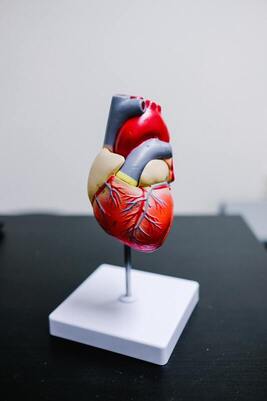 Photo by NeONBRAND on Unsplash Photo by NeONBRAND on Unsplash I’ve grown weary of all the talk about the heart in contemplative prayer. Sounds terrible, doesn’t it?! After all, the heart is the focal point of contemplative prayer! But after a while, my heart started getting angry, feeling the burden of such attention and expectation. Nineteenth century Russian mystic Theophan the Recluse said, “To pray is to descend with the mind into the heart, and there to stand before the face of the Lord, ever-present, all-seeing within you.” Teachers of prayer and contemplation, like Theophan the Recluse, have emphasized the heart and taught various ways of guiding us to pray from it. I have learned and offered others various ways of integrating such prayer, especially through the imagination as we bring our attention to the heart. But I did not realize how much modernity was still operating under the surface. Contemplative prayer was such a welcome relief for me after prayer that emphasized the “head” with its words, whether thought or spoken. With the latter, once one had invited Jesus into or given Jesus their heart, the focus was on knowing the right beliefs and acting accordingly. All that was needed for prayer was found from the neck up (and the rest was not to be trusted!). This disconnect was not unexpected. When modernity ushered in a time of dissecting in order to discover, the heart became associated with a particular organ in a particular location. Where is the heart? It’s in the chest, of course! It’s job is to pump blood (and woe to the person who trusts any feelings associated with it!). The earliest Biblical people did not think of the heart (lev) in this way. The “heart” of a person referred to the “seat of all of life.” When told to “love God with all of your heart,” this included one’s mind, soul, and strength. For the ancient people, the heart was the whole of a person—feelings, thinking, understanding, will, and wisdom. Since the heart was the center of one’s existence (physically, mentally, and emotionally), to love God with one’s heart was to allow God to be at the center of one’s whole self (body, mind, and soul). What is at our center directs our life. Tapping into and resting in that center with God is the playground of contemplative prayer. However, modernity broke up this inherent unity to study and evaluate the diversity of the parts and it elevated the mind above all else. Contemplative prayer with its emphasis on the heart, invited the mind to descend from it's place of self-sufficiency and recover humility. But, if modernity is still the framework, the draw is to elevate one part over the others, this time placing the heart on a pedestal rather than locating it within the whole. During a time of meditation with a Buddhist, I was not guided to focus on my heart, but to discover any place of openness or peace within. Hearing her words offered me an unexpected ah-ha moment! I immediately was transported back to the Hebraic view of the heart. As I listened to the whole of my body and not just one part, I discovered the burden on my heart and tension in my chest began to dissipate. (Last week I mentioned this inner co-dependency with the heart.) I chuckled as I noticed the openness was in my face, particularly my cheeks. Another time the openness was in my gut, still another behind my eyes. All of these places were open to God but I was unable to see them for my inner eyes were focused on one place! So much wisdom just waiting to be discovered. When God infuses all of oneself, all of oneself is a channel to experience God. The heart is found everywhere, not simply in one physical location. Where am I best able to listen to the heart of God today? I notice an openness in my hands. Through my hands, the heart of God has something to say to the heart of me. Through my hands I listen and offer a prayer. 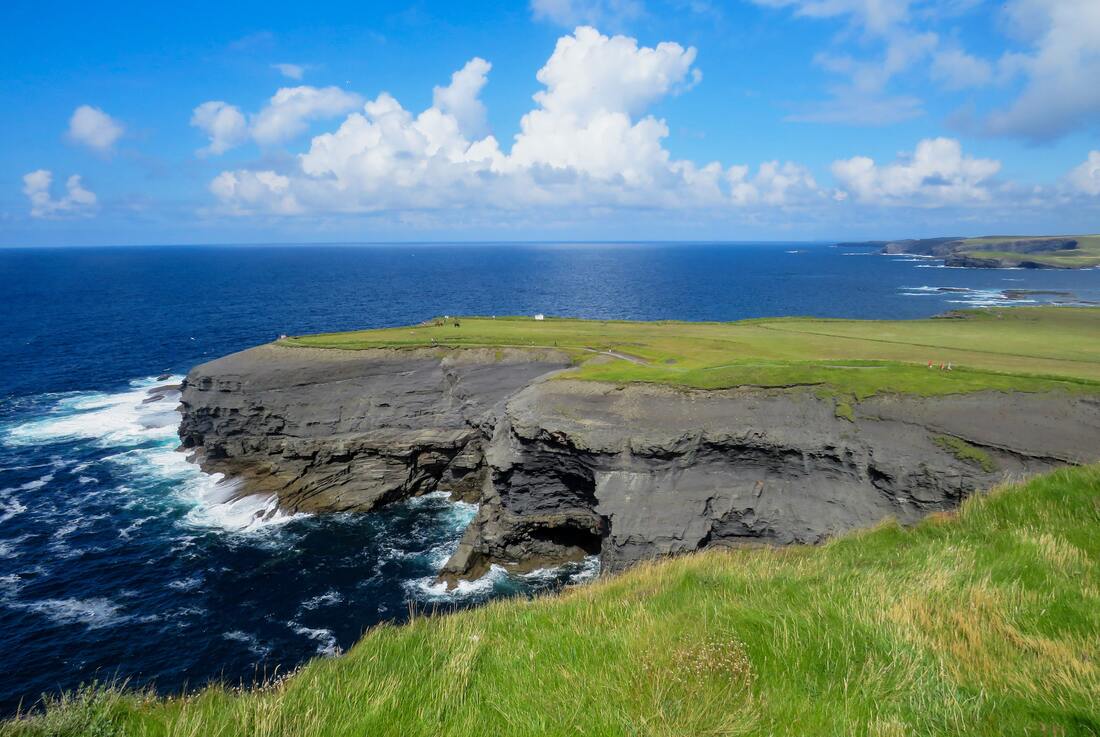 Photo by Mark Lawson on Unsplash Photo by Mark Lawson on Unsplash There are some poems & places where the images stay with you. When September arrives, Postscript, by Irish poet, Seamus Heaney, is one of those poems for me. Read or listen and watch below. Postscript And some time make the time to drive out west Into County Clare, along the Flaggy Shore, In September or October, when the wind And the light are working off each other So that the ocean on one side is wild With foam and glitter, and inland among stones The surface of a slate-grey lake is lit By the earthed lightning of a flock of swans, Their feathers roughed and ruffling, white on white, Their fully grown headstrong-looking heads Tucked or cresting or busy underwater. Useless to think you'll park and capture it More thoroughly. You are neither here nor there, A hurry through which known and strange things pass As big soft buffetings come at the car sideways And catch the heart off guard and blow it open. __________________________ I remember being at a Nebraska rest stop during a wind storm on my way to Seattle from Cape Girardeau, Missouri, a cross-country move fraught with break-downs, both literal and metaphorical! As I was getting out of the car, the wind caught my driver's side door and blew it wide open. In that moment, all the stress, frustration, and anger that I usually succeed in keeping under wraps stormed to the surface. Much to my surprise, I started raging into the wind as my hair whipped all around! For any witnesses, I am sure it was a sight to behold. I felt both powerful and powerless. It’s a moment I will never forget. And while I have no desire to return to that rest stop in Nebraska, I return to the story quite often! There have been other times my heart has been caught off guard and blown open by unexpected beauty, love, and goodness. Sometimes they have been ordinary moments, sometimes extraordinary—from receiving a tender touch from my spouse after a fight (and it relaxing my defenses) to experiencing an ecstatic vision of being swept up in the Wave of Love (and it changing everything). Whether ordinary or extraordinary, surprises like these are heart-softening and heart-opening. There are places I make a point to return to because they are the places of these heart-softening and heart-opening moments. I had not been expecting anything (or at least I thought I knew what to expect) and suddenly something unforeseen and unplanned happens to “catch the heart off guard and blow it open,” changing that time of year, that place, and me, forever. I cannot help but encourage others to go and see (& experience) these places for themselves—from monasteries to places in nature--especially in September and October. How about you? What are your moments that have caught your heart off guard and blown it open? Where would you suggest someone make time to go to during September or October? Some Words for Those Who Won’t Listen (and for Healthcare Workers Who Are Exhausted From Shouting)8/18/2021
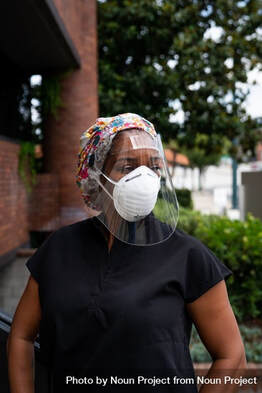 Portrait of thoughtful nurse outside in PPE looking away from camera by Noun Project from NounProject.com Portrait of thoughtful nurse outside in PPE looking away from camera by Noun Project from NounProject.com “Wake up!” they shout. “Pay attention! Turn around!” These are words of prophets. And I have heard from three of them this week alone. With the shouting and weeping of Isaiah and Jeremiah, health care workers are sounding the alarm. Are we listening? They have the “inside scoop” of “reality as it is” rather than what we would like reality to be. COVID is not over. Social issues of the day and people’s selfish lack of response to them fired up Old Testament prophets. But their audience was a “stiff-necked people,” not listening to those who God was speaking through. These nurses and chaplain came to Spiritual Direction fired up about people’s lack of response to this social issue of our day. They are watching a preventable illness kill people of all ages while most seem to go on as though nothing is happening (or simply have decided to due to pandemic fatigue). The fruit of “false prophets” (like a pastor in my town who is preaching against and even punishing parishioners for wearing masks or the government and local leaders playing politics) is fear, division, isolation, hate, and death. They may speak the “right words” even use religious-sounding language, but “you’ll know them by their fruit” taught Jesus. The fruit of these health care prophets is lived-out compassion and the saving of lives. A vaccinated chaplain holds the hands of unvaccinated patients on the COVID floor of the hospital, putting her own and her young family’s health at risk to offer comfort. A nurse recovering from her own break-through case of COVID feels like she’s at the breaking point as she continues to tend to so many patients. A neonatal nurse watches as her pediatric hospital begins to fill and warns that the most vulnerable are suffering due to a view of freedom divorced from the common good. These health care workers are fired up with anger that shouts, “Something must change!” They are fired up…and they are exhausted. “Last year we were everyone’s heroes,” one told me, “this year we are ignored and at times even hated. I don’t understand. We’re seeing so much death and no one is listening to us, no one seems to care about us. Any cards of encouragement sitting around are from last year.” “I don’t know how long I can do this,” another said. It is time to stop dissociating. The path of and toward Life can be hard (& long) sometimes. But as my good friend, Linda says, “We do not do things because they are easy, we do them because they are important.” Listen to what the health care workers are saying is important. Here’s one right here in Tennessee. ____________________________ Now if you are a health care or front-line worker, an adult or child surrounded by people who refuse to heed the prophetic voices of our time, but prefer to “listen to what their itching ears want to hear” (see II Timothy 4:3), I want to offer some observations from a Spiritual Direction session this week. With her permission, allow these insights from a Florida chaplain of a big hospital to speak to you. First, let's begin with some Lectio Divina. Mark 4:35-41 35 On that day, when evening had come, he said to them, “Let us go across to the other side.” 36 And leaving the crowd behind, they took him with them in the boat, just as he was. Other boats were with him. 37 A great windstorm arose, and the waves beat into the boat, so that the boat was already being swamped. 38 But he was in the stern, asleep on the cushion; and they woke him up and said to him, “Teacher, do you not care that we are drowning?” 39 He woke up and rebuked the wind, and said to the sea, “Peace! Be still!” Then the wind ceased, and there was a dead calm. 40 He said to them, “Why are you afraid? Have you still no faith?” 41 And they were filled with great awe and said to one another, “Who then is this, that even the wind and the sea obey him? After listening to the story read to her three times, the chaplain spent time with two phrases she was drawn to: “On that day” in verse 1 and “the cushion” in verse 38. These details held precious wisdom for a way through this pandemic storm. Here is what she discovered:
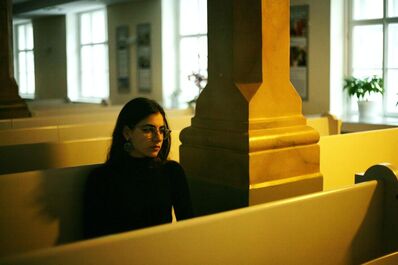 This may be figurative for you as in, “There’s no going back to church as it was before the pandemic.” Or it may be literal, as in, "I'm not going back…period." I have heard both. Pastors and parishioners come to spiritual direction wrestling with what the future looks like for their particular church and the Church as a whole. Others come with the discovery that church attendance was part of a checklist they found relief from during the pandemic when it was no longer something they “had to do” because they couldn’t do it! But things are beginning to open up. As more people receive vaccines and mask-mandates are lifted, some are feeling a growing pressure to figure out what they’re going to do when it comes to church (this includes pastors!). Some tell me how much they miss being with their congregation and cannot wait to go back to in-person worship without the worry of virus spread. While these folks have regularly tuned-in to online worship, just thinking of returning to the building brings joy. It will be a type of homecoming to a family and place they long to see and be. Yet this is not the sentiment of everyone. Two months into the pandemic, a long-time church-goer said to me, “It’s astounding how little I miss church. That's definitely saying something to me.” This person regularly comes to spiritual direction and regularly helps those in need, yet they have experienced a growing disconnect with their church over the past few years. The pandemic only heightened, or brought to the surface, what was covered by obligation and comparison. While those around them seemed to be enjoying and feeling nourished by the Sunday morning service, everything felt forced and inauthentic to them. In spiritual direction they recalled continuously leaving spiritually starving and angry. They recounted every positive-thinking, heart-opening spiritual practice they have tried…and nothing changed. Their discontent and disgust just grew. The pandemic was in some ways a grace, offering a break from the inner turmoil of whether they should stay or leave. Overly-simplistic truths like “Church is the people not the building” offer little help because church and church-going can be complicated depending on one’s personality, childhood, personal beliefs, and present experience of church-going and church-people. I know this, because I, too, have wrestled for decades, and continue to wrestle, with all that is intertwined with church/Church. It’s been a long, liminal space for everyone. This threshold, or in-between time, can lead to deep questions or the acceptance of a clarity that has been clouded over by a sense of coerced duty and/or loyalty (whether the pressure comes from within or without). Could leaving church actually be a sign of spiritual growth? It just may be. My directee craves more than their congregation can offer. They want to go places theologically and spiritually their congregation is unwilling—perhaps unable—to go. Conversations have failed to lead to Shalom (peace and wholeness). Even after many years, they may need to heed Jesus' call in Matthew 10, to “shake the dust from your feet” and leave. No need to demonize the pastor or congregation, it’s simply time to move on and continue one’s journey on and toward the path of Life. It’s not easy. There’s no one-size-fits-all way of leaving a place and people one had hoped would be life-giving. It requires a lot of trust. As my directee has wrestled with their discernment, I have never given them reasons to stay or leave or suggestions on how to stay or leave. I just listened. Ways of wisdom always arise as we release our stranglehold and wait for God's guidance (for the Holy Spirit is the true Spiritual Director, after all!). So whether you are joyfully anticipating resurrection through returning to a beloved congregation or grieving the realization that you need to let something die for belovedness (including beloved community) to be born again, spiritual direction is a safe place during the in-between. In spiritual direction, you will find permission to let your own inner wisdom be your guide. Allow the feelings of pressure and dread to speak. Listen to what your body has to say. Pay attention to the images your soul is offering. Become aware of patterns in the ways God has been at work in your own life story. For God has been and always will be fully present to you and in you. The fullness of God's presence is equally with the person who worships in a church building (with 15 or 5000 people) as with the person who worships in ways that do not include a church building and its congregation. To a group of young men, 13th century mystic, scholar, and Dominican priest, Meister Eckhart, said: "Whoever truly possesses God in the right way, possesses him in all places: on the street, in any company, as well as in a church or a remote place or in their cell…” (Walshe, 2008, Talks of Instruction, 6). He also once said, Some people prefer solitude. They say their peace of mind depends on this. May the wisdom of Meister Eckhart give us the boldness to listen to our own—and to stay and leave as the Spirit beckons.
|
AuthorKasey is a scarf, ball and club juggling spiritual director just outside of Nashville, TN. Play helps her Type-A, Enneagram 1 personality relax, creating space for poetry and other words to emerge. She also likes playing with theological ideas like perichoresis, and all the ways we're invited into this Triune dance. Archives
January 2024
Categories
All
|
By clicking “Sign up for E-News” I consent to the collection and secure storage of this data as described in the Privacy Policy. The information provided on this form will be used to provide me with updates and marketing. I understand that I may modify or delete my data at any time.
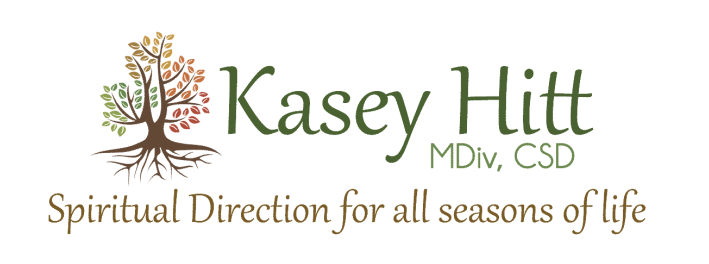
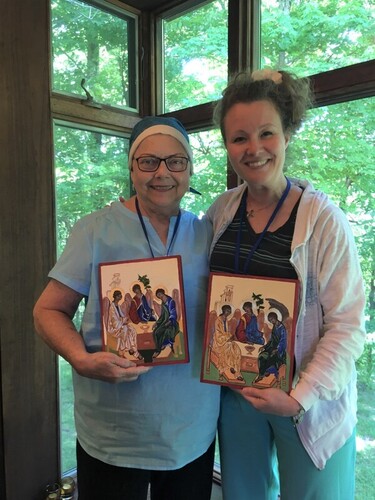
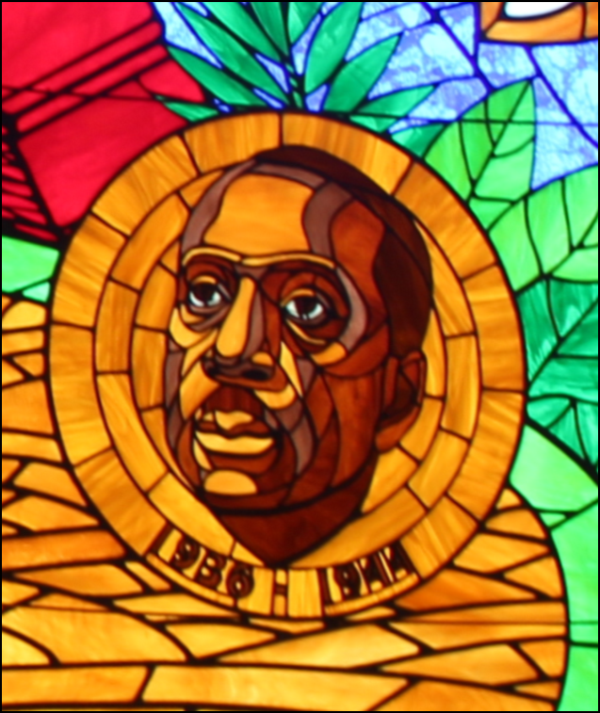

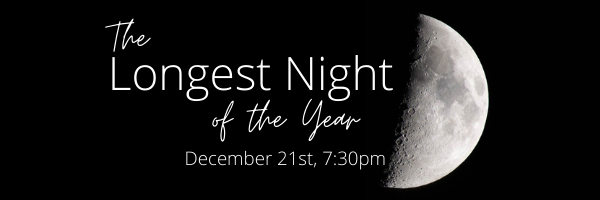
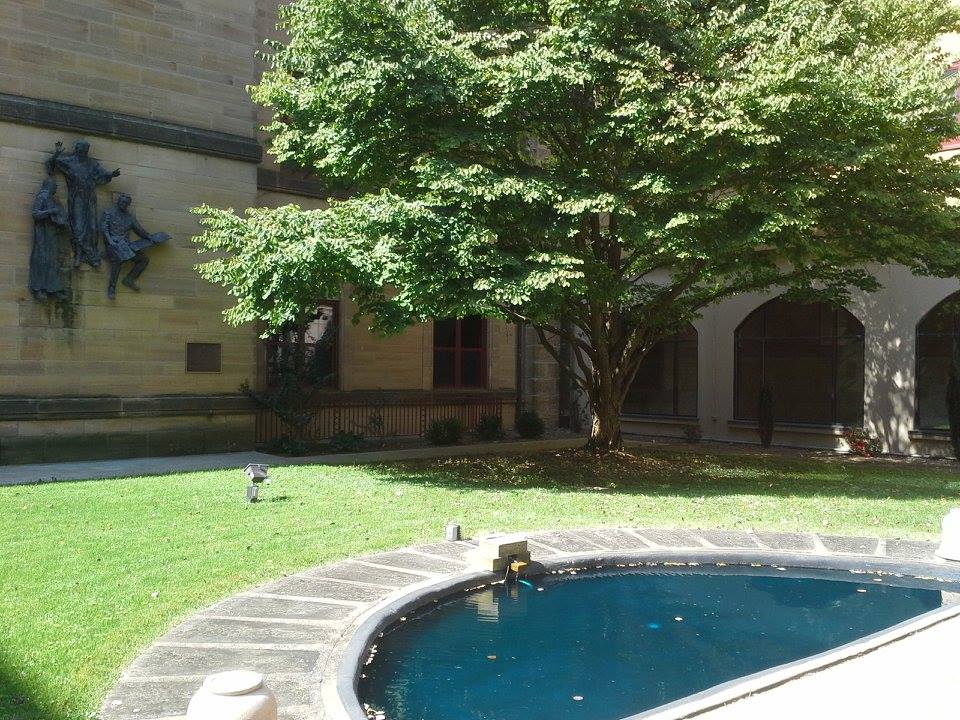
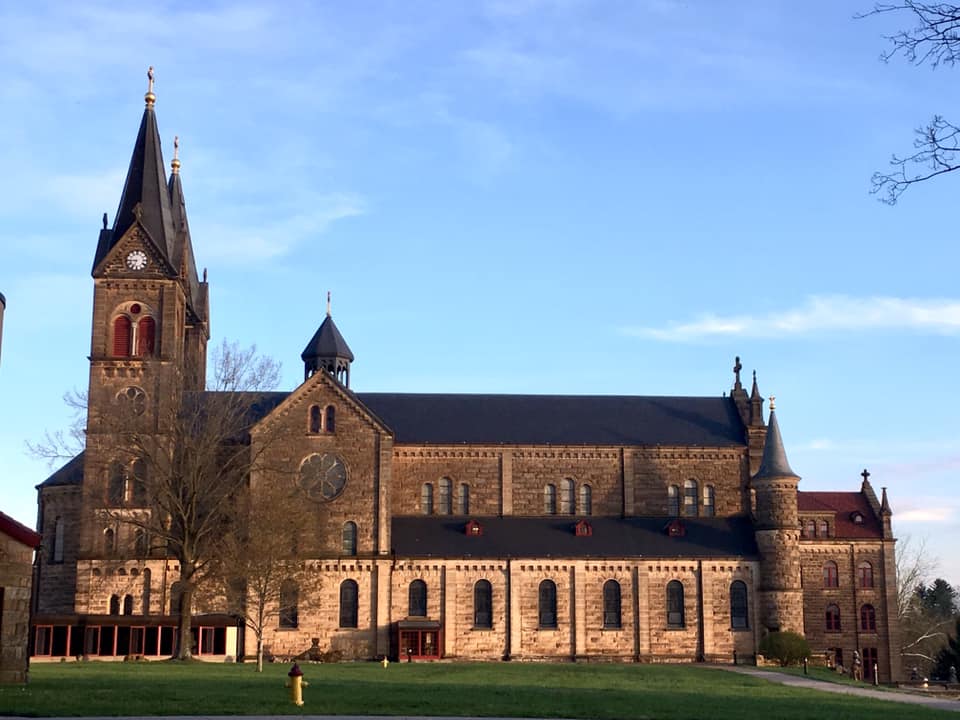
 RSS Feed
RSS Feed

